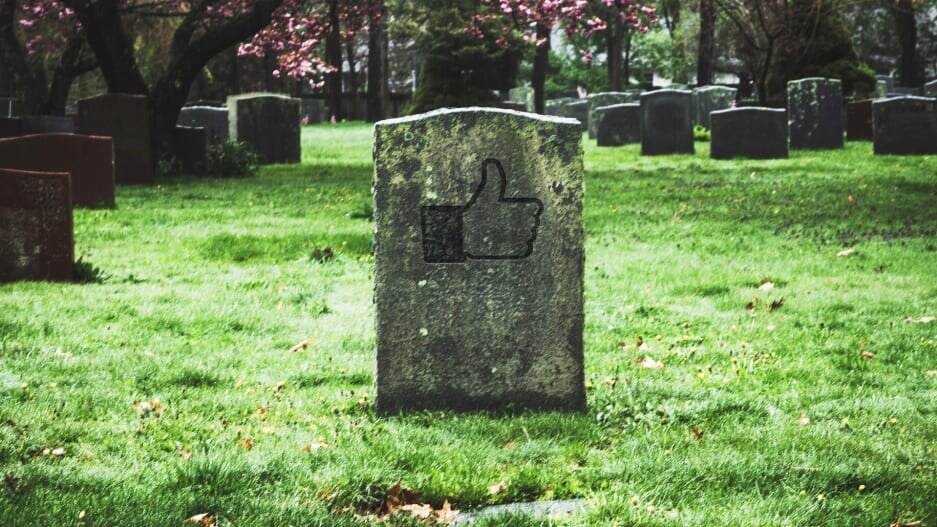- | 11:00 am
Social networking as we know it is likely on its way out
Facebook’s morph into a TikTok-like platform could spell the beginning of the end for social networking.

Social networking, as we’ve come to know it, is probably on the way out. It was once a big draw for all kinds of people, and at the same time an amazing way to harvest personal data that could be used to target ads.
But everything is temporary on the internet. TikTok created an app that’s more addictive than anything else before it. For many people, it’s the funnest thing you can do on a smartphone. And Meta, whose apps have topped the app store charts for years, knows it. So Meta built a TikTok video knockoff called Reels. And it announced last week that it’s changing its flagship Facebook app into something of a video app.
The Facebook app now opens to a Home tab that contains the Reels videos (the changes will come to the desktop app later, Facebook says). If you want to catch the latest post from your old high school friend or lurk on your ex’s pages, you’ll have to open a different tab now, the “Feeds” tab. That’s where the social networking functions are—a sort of side attraction. (Users can like or comment on short-form videos, but they’re more about entertainment than socializing.)
Axios managing editor of technology Scott Rosenberg put it like this in a Monday post: “Mark last week as the end of the social networking era, which began with the rise of Friendster in 2003, shaped two decades of internet growth, and now closes with Facebook’s rollout of a sweeping TikTok-like redesign.”
Facebook management now considers its core social network to be a “legacy” technology, Rosenberg later adds. In the tech world, “legacy” means something like 3G or dedicated MP3 players–things that will fade away and be discontinued.
For a very long time, those features were the main attraction. They were the catnip that kept users coming and staying (and viewing ads and leaving breadcrumbs of their own personal data). During its formative years, Mark Zuckerberg’s company offered a social network, a version of MySpace that was neat and well organized. And, best of all, everybody was there! It offered users a way to keep up with friends’ vacations and relatives’ new-baby pics, and the thrill of having their own posts liked and commented on. It was all about connecting with friends and family.
Until it wasn’t. By 2015, users’ feeds were thick with content from total strangers. They saw ads, news article links, and group posts, all carefully targeted by user preferences, browsing habits, demographics, political and religious beliefs, and scores of other signals. This allowed legitimate advertisers to reach finely segmented audiences with their message at reasonable prices.
But bad actors, both domestic and foreign, learned how to exploit and weaponize the algorithm. They did so to great effect during the 2016 election cycle, placing anonymous ads designed to stir up social unrest, racial bias, political rancor, and to degrade confidence in U.S. institutions, including the electoral system. Divisive content and misinformation (aka, fake news) often got the most engagement. Never mind that much of the divisive content was posted by strangers, it had the effect of driving very personal wedges between friends and families, ultimately alienating many users.
By the end of the 2016 election, Facebook had strayed far from the “friends and family” social network it once was. Many people blamed the company for having inadvertently helped Donald Trump win office. It didn’t help that Facebook also allowed the personal social data of millions of its users to end up in the hands of Cambridge Analytica, a political data science group hired by the Trump campaign. During the fallout from those events, Zuckerberg, on several occasions, tried to steer Facebook back toward more meaningful “friends and family” social networking. He wrote in a January 2018 post that Facebook users would soon start to see more “meaningful content.” He wrote: “The first changes you’ll see will be in News Feed, where you can expect to see more from your friends, family, and groups.”
At the F8 developer conference the following year, he said Facebook’s “next chapter” would be focused on private communications. “I believe the future is private,” the CEO said. “. . . the private parts of our social network will be more important than our digital town squares.”
Zuckerberg’s “digital town square” was and is a failure. It’s not a platform for public discussion and reconciliation. It remains a platform of closed-filter bubbles. The “private” parts of the network are more useful, perhaps, but not as profitable.
Now, the most important algorithm on Facebook is something it’s calling the “recommendation engine.” It’s Facebook’s version of the TikTok recommendation engine, which reads the video viewing and liking habits of users in order to suggest the next video and the next and the next.
Serving up videos produced by complete strangers is very likely Facebook’s future. For most of its history, the company’s model has been luring users with a free social network, then vacuuming up their personal data for ad targeting. When the draw of the free social network wanes, something has to take its place. It just so happens that it’ll be 30-second videos of people scaring their cats.







































